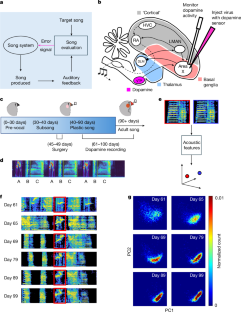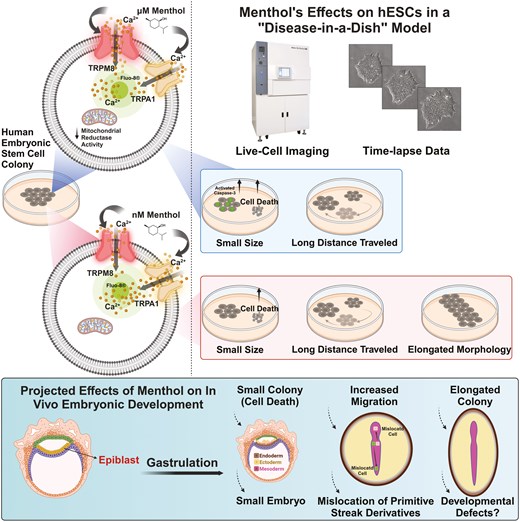2025-03-12 コロンビア大学
<関連情報>
- https://zuckermaninstitute.columbia.edu/songbirds-highlight-dopamine-s-role-learning-0
- https://www.nature.com/articles/s41586-025-08729-1
自然行動はドーパミンを介した強化によって学習される Natural behaviour is learned through dopamine-mediated reinforcement
Jonathan Kasdin,Alison Duffy,Nathan Nadler,Arnav Raha,Adrienne L. Fairhall,Kimberly L. Stachenfeld & Vikram Gadagkar
Nature Published:12 March 2025
DOI:https://doi.org/10.1038/s41586-025-08729-1

Abstract
Many natural motor skills, such as speaking or locomotion, are acquired through a process of trial-and-error learning over the course of development. It has long been hypothesized, motivated by observations in artificial learning experiments, that dopamine has a crucial role in this process. Dopamine in the basal ganglia is thought to guide reward-based trial-and-error learning by encoding reward prediction errors, decreasing after worse-than-predicted reward outcomes and increasing after better-than-predicted ones. Our previous work in adult zebra finches—in which we changed the perceived song quality with distorted auditory feedback—showed that dopamine in Area X, the singing-related basal ganglia, encodes performance prediction error: dopamine is suppressed after worse-than-predicted (distorted syllables) and activated after better-than-predicted (undistorted syllables) performance. However, it remains unknown whether the learning of natural behaviours, such as developmental vocal learning, occurs through dopamine-based reinforcement. Here we tracked song learning trajectories in juvenile zebra finches and used fibre photometry to monitor concurrent dopamine activity in Area X. We found that dopamine was activated after syllable renditions that were closer to the eventual adult version of the song, compared with recent renditions, and suppressed after renditions that were further away. Furthermore, the relationship between dopamine and song fluctuations revealed that dopamine predicted the future evolution of song, suggesting that dopamine drives behaviour. Finally, dopamine activity was explained by the contrast between the quality of the current rendition and the recent history of renditions—consistent with dopamine’s hypothesized role in encoding prediction errors in an actor–critic reinforcement-learning model. Reinforcement-learning algorithms have emerged as a powerful class of model to explain learning in reward-based laboratory tasks, as well as for driving autonomous learning in artificial intelligence. Our results suggest that complex natural behaviours in biological systems can also be acquired through dopamine-mediated reinforcement learning.


